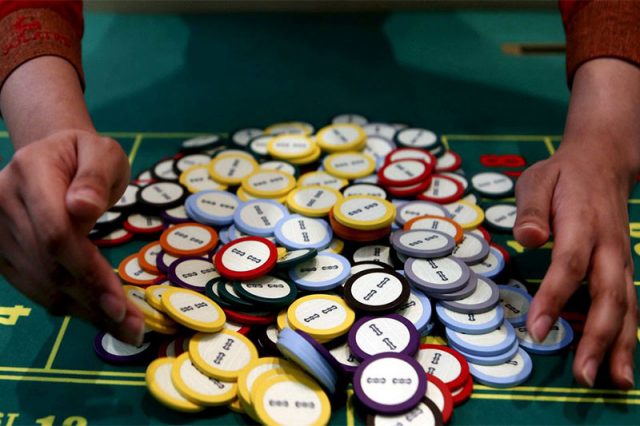
MANILA — China urged the Philippines on Friday to stamp out offshore gambling, an online industry it described as a “social ill” encouraging crimes such as kidnapping, human trafficking and murder.
Senior Philippine government officials have expressed concerns about the continued presence of illegal Philippine Offshore Gaming Operators (POGO), several of which are run by Chinese companies. President Ferdinand Marcos Jr. said last month they might pose a national security risk and a senator has put forward a bill to outlaw them, but their fate is currently unclear.
READ: Philippines cracks down on POGOs
The online gaming industry emerged in the Philippines in 2016 and grew exponentially as operators capitalized on liberal gaming laws to target customers in China, where gambling is banned.
Manila has however cracked down on illegal POGOs, which the gaming regulator Pagcor said on Thursday numbered 250 to 300, compared to 46 licensed operators. In the past year, China has helped the Philippines to shut five POGO hubs and repatriate a thousand Chinese.
“We appeal to the Philippines to ban POGO at an early date so as to root out this social ill,” the Chinese embassy said in a statement.
“POGO is detrimental to both Philippine and Chinese interests and images as well as China-Philippines relations,” it said, adding that most victims of the POGOs were Chinese. At the same time, it dismissed suggestions that POGOs presented a security threat to the Philippines, with which overall relations are strained.
Although the number of licensed POGOs has shriveled from a peak of 300, due largely to the pandemic and tighter tax rules, Pagcor suspects many have gone underground.
There was no immediate comment from the Philippine regulator on China’s appeal, but its chief told Reuters on Thursday it was prepared to comply with any government decision, which might include banning the industry altogether.
—Reporting by Mikhail Flores; Editing by Kevin Liffey









